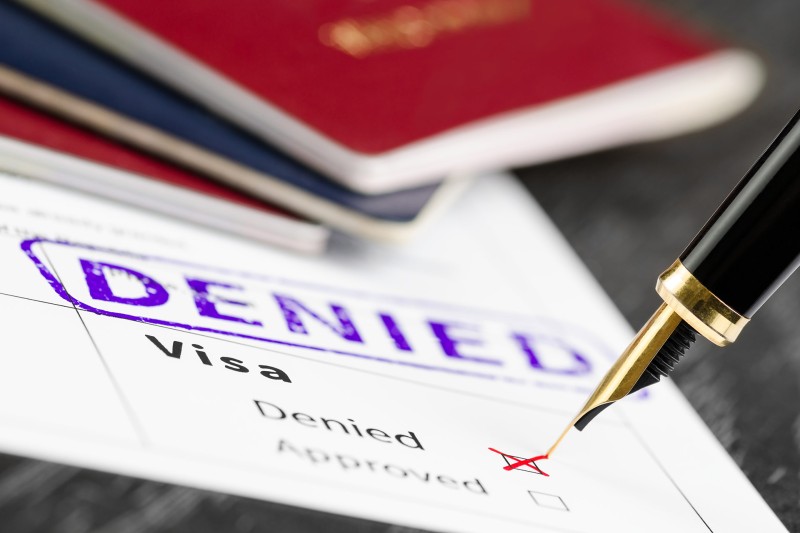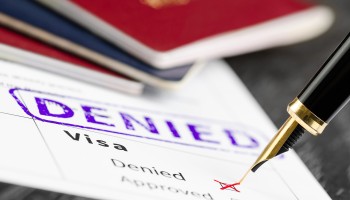Moldovans seeking to move to the Schengen area have one tool that many others do not—they can ask to claim citizenship of Romania, a process officially called “regaining of citizenship,” because the people share a language and once shared mutual territory. That citizenship would guarantee them a Romanian passport and membership in the EU, which would allow them to move freely throughout EU countries.
That tool, though, is not an easy one to use, and it is heavily abused. Since 1999, according to a comparison of records and sources, as many as a million Moldovan citizens—one fourth of the country’s population—immigrated, mostly illegally, to European Union countries. National and international organizations figure that anywhere from 600,000 to a million Moldavans work abroad, but the Moldova National Bureau of Statistics’ lists the official number as 350,000.
Since 2007, when Romania was granted membership to the EU, the forgery of Romanian passports and ID cards became a lucrative business, say Moldovan experts. The reason to turn to forgers is that they can turn a complicated procedure that can last five years or so into a three-week experience. Grigore Burciu is one who has adhered to the law, and although he applied for Romanian citizenship in 2004, he is still registered as a Moldovan and still lives in Chisinau.
“Since 2008, I haven’t had any news from the Consulate,” Burciu said. “I will probably receive Romanian citizenship at the end of the year, so now I’m waiting. What else can I do?”
Using a “Mediator” Firm
Vasile, 28, has his answer to those questions. From Truseni village, he got to Italy two years ago, using a tourist visa issued by a “mediator” firm. When the visa expired, he stayed in Italy and has worked illegally in construction in Rome since. “I paid €2,000 for the visa,” said Vasile, who asked that his last name not be used. “The mediators turned me overnight into a truck driver in a private company. They perfected a fake driver’s license, which was also submitted to the Consulate. I paid them the money when I saw the visa in my passport; after a few days I was in Italy.”
That route is commonly followed, said Ghenadie Podsevalov, formerly the head of a department of the Ministry of Domestic Affairs, involved in fighting organized crime and familiar with the problem. Podsevalov now works as a private detective. He said the Schengen tourist visa business blossomed in Moldova from 1996 to 2006, with many tourist companies sending Moldovans to work in the EU and not on holiday as they pretended. “They used to find their clients through Makler newspapers,” Podsevalov said. “At the beginning, the mediators worked with EU embassies, but as soon as Chisinau was forced to adhere to EU policies, tourist companies moved to Kiev…It was such companies that helped hundreds of thousands of people reach the EU and never return home.”
Donor Pressures Trigger Change
He said pressure on Moldova from foreign aid donors practically shut down many mediator companies, although he said he thinks that those who remained in business were excellent forgers or enjoyed protection from state officials. “Should police want,” Podsevalov said, “they could throw such racketeers in prison.”
Things may be changing, though, even for those who have remained, Podsevalov said. In October, a notice appeared on the web page of the Schengen Visa Application Centre, saying that faked supporting documents were on the rise and the embassies will deal with the abusive practice with a thorough verification of documents, possibly “with the help of Moldovan authorities.”
Probably, Podsevalov said, “this is the beginning of the end for go-between mediators.”
If that happens, it could mean an end to the advertisements of “Schengen visa help” in the Makler newspapers that Podsevalov mentioned. But how do mediators get somebody through and how much does it cost for their services?
A call to a phone listed in the newspaper was answered by a woman, who asked, “Is it your first trip to the Schengen area?” To the answer, yes, she said, “A ten-day tourist’s visa costs €2,000. You pay the money after you receive the passport with the visa included. And you do not have to pay advance money. As a rule, the procedure lasts for one month. Do not worry; you will receive a valid visa. You will be able to enter Italy. Further on, it’s your business whether you come back or not.”
Using Kiev
Questioned further, she said only an ID card and passport were needed. “We’ll take care of the rest of the documents,” she said. “...You will have to go to the Kiev Consulate for an interview. But there is no need to worry. We shall teach you how to speak properly.”
But why Kiev, when there is an Italian consulate in Chisinau, she was asked. Her answer: “We work only with Kiev Consulates. In Chisinau it is much more complicated.”
At the headquarters of a firm that advertises help in getting Schengen visas, on the fourth floor of a grey block of flats from the Brezhnev era, three women answered constantly-ringing phones. One came to answer questions and outlined fees and visa terms, asking for the same documents the woman in the phone call had asked for. This woman, who was blond and looked to be about 30, said, “In a week, we shall prepare the visa folder and program for you at the Kiev office for submitting the documents...we shall teach you how to speak and what to say with the (Kiev) consulate employees. Don’t be afraid. Only fools are rejected.”
Asked if an applicant needed to supply a work record or a university diploma, she answered curtly: “No. I told you the only thing we need is the passport and ID. Just that.”
How are the documents forged? According to the Ministry of Domestic Affairs, from January to November of this year, there were arrests of members of 40 criminal groups that specialize in forging documents for arranging illegal migration. That is a jump from statistics on forgers arrested in the past three years, when the ministry said police in Chisinau had arrested only 21 for forgery of this type.
Forgers, according to law enforcement officials, usually cooperate with criminal groups specializing in illegal migration to EU states. In August, the Center for Fighting Human Trafficking under the Ministry of Domestic Affairs arrested Serghei Ivanenco, 43, for counterfeiting Romanian documents. In an official report of the Ministry of Domestic Affairs, Ivanenco was quoted as confessing that he had been in business for four years and had made fake documens only at the order of those who arrange illegal migration, and that he was paid about €50-€150 for each document.
In turn, according to police reports and from interviews with those familiar with the process, his customers ask the eventual owners of the documents, Moldovans who want to reach the EU, for fees from €2,000 up to €4,000. That price includes any passport work as well as accompaniment to the destination country.
Avoiding Risks Brings Long Wait
If frontier guards discover the documents, Moldovan and Romanian legislation provides a huge fine or up to two years in prison. Hungarian legislation has similar provisions.
Burciu, the young man who has waited years for his Romanian citizenship, does not hide his intention to leave immediately for Italy as soon as he gets a Romanian passport. He acknowledged that he knows that many Moldovans reached that country with fake passports, but considers that too expensive and, at the same time, not worth the risk.
And what of those who have neither Burciu’s patience nor a willingness to use the mediators? The wait, for those like Maria, 42, can be long and end in sadness.
A Moldovan housewife who lives in Calarasi, she tried to get a visa to Germany, where she has relatives. The relatives promised that they would provide all her food and accommodations. She spent a week collecting the package of documents she needed—work record card, secondary school certificate, medical insurance. She took them and her passport to the German Consulate in Chisinau.
“The official asked me if I had a job. My answer was I had no official job...he inquired how I was earning a living. I told him that my husband, who works legally in Portugal, supports me financially...The man looked doubtfully at me, then urged me to pay the €35 (visa fee) and told me to come back to the Consulate in 10 days.”
There was no assurance of a visa, primarily, the man told her, because it was likely she would not return to Moldova. Ten days later, her fear came true—rejection. Reason: the lack of sufficient proof she would return home when her visa expired. Her wait and her €35 were for nothing.
--Dumitru Lazur


